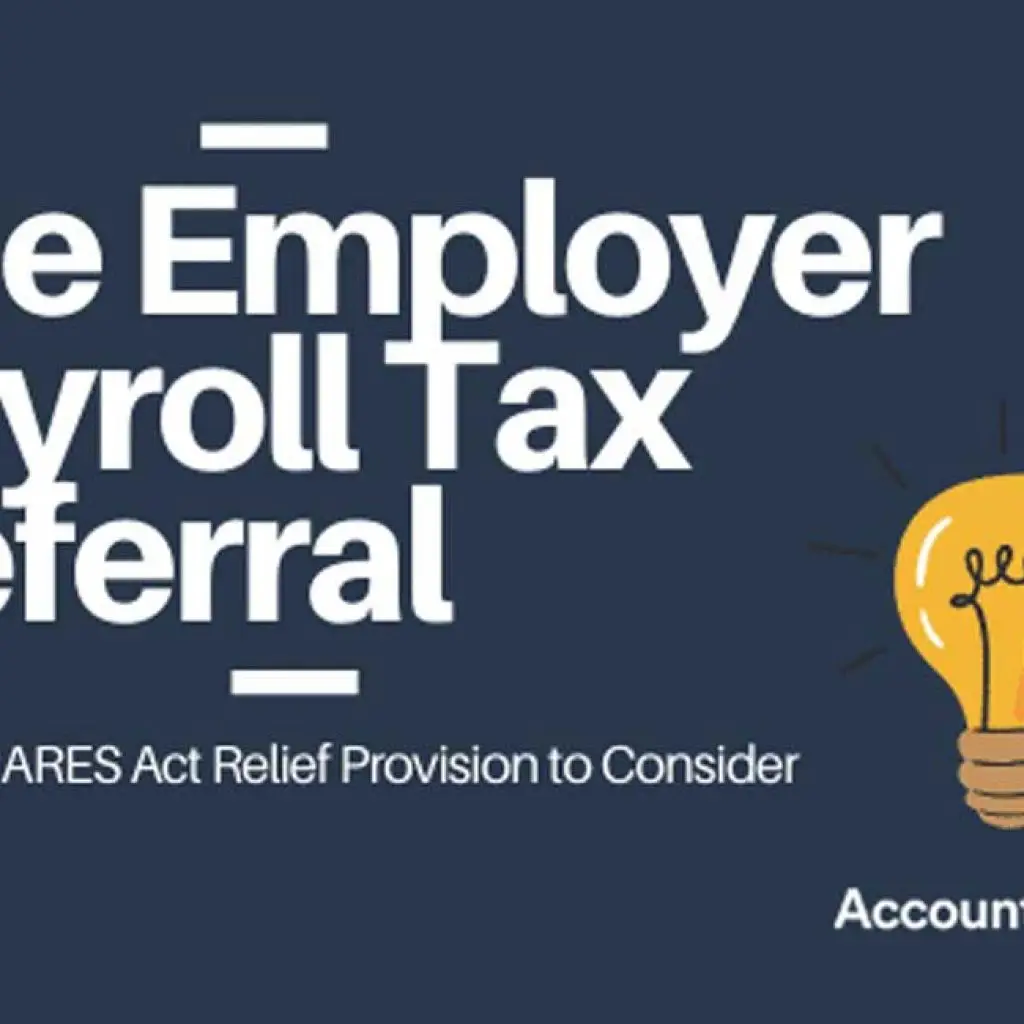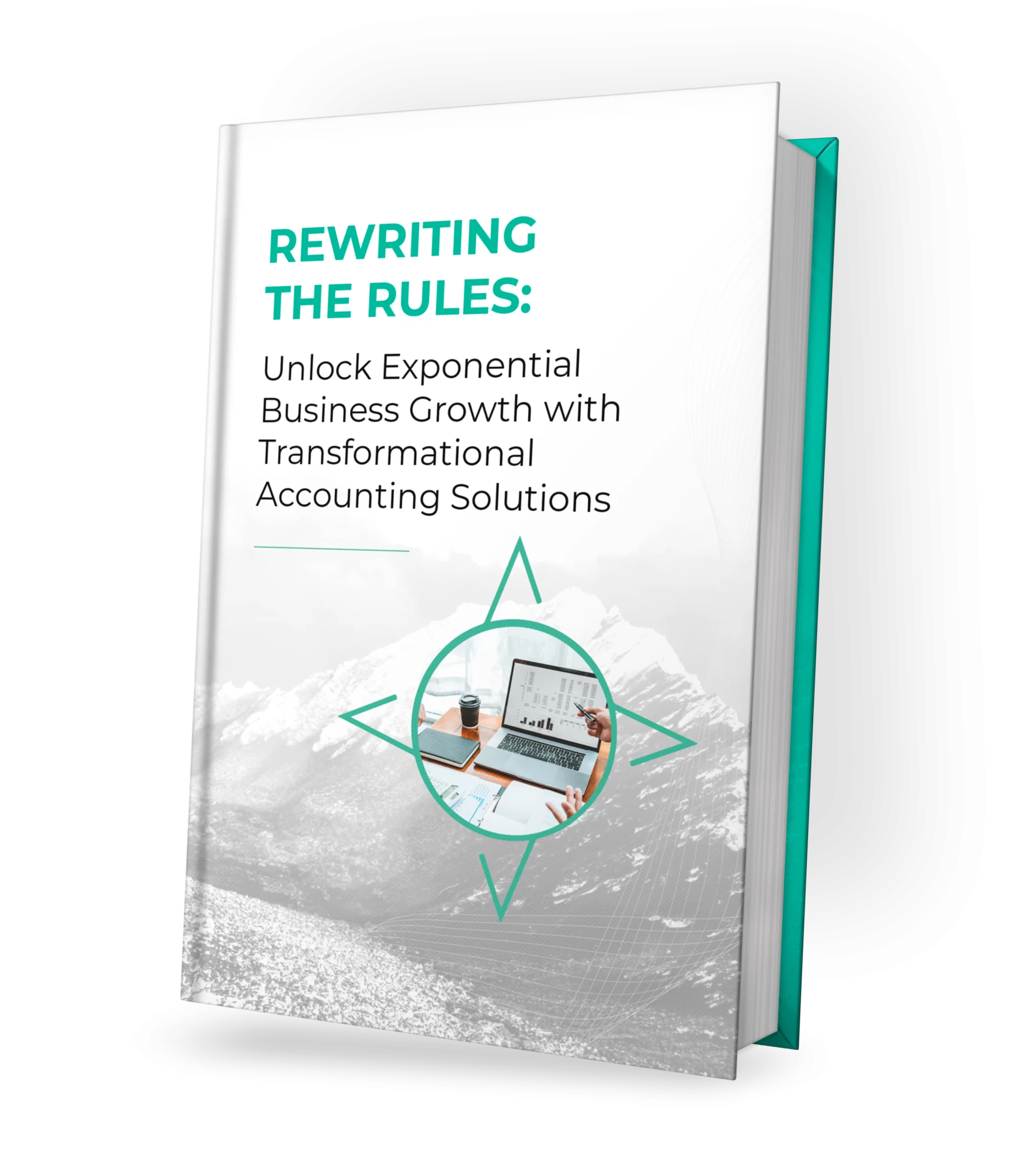Employers and Self-Employed taxpayers can delay payment of the employer portion of payroll taxes through the end of 2020 under the CARES Act Payroll Tax Deferral §2302.
The CARES Act is a significant piece of legislation and it includes many tax and financial relief provisions. You may be aware of the Payroll Protection Program (PPP). A Small Business Administration (SBA) loan for about 2.5 months of payroll that will be forgiven if you follow the rules. The roll out of the PPP has been challenging for SBA, Treasury, and participating lenders. If you are frustrated or discouraged with the process there are other options to consider like the CARES Act Payroll Tax Deferral and the previously written about Employee Retention Credit.
An Interest Free Loan
If your business employs this provision you are effectively granted an interest free loan for half of your payroll tax liability from March 27 2020 through the end of the year. These deferred payroll taxes are repaid in two tranches. The first 50% by December 31 2021 and the remaining 50% by December 31 2022 all without penalties or interest.
How Much Can I Defer?
For those of you who are not up to speed on payroll tax calculations the employer portion of Social Security payroll tax is generally 6.2% of total payroll. The employer portion of Medicare tax at 1.45% of payroll is not included in the deferral.
No Application or Approval Required
While the PPP may be the most lucrative financial incentive available for most businesses the Deferral of Payroll Taxes and the Employee Retention Credit are noteworthy in that your business will receive these benefits if you met the eligibility requirements. Thankfully and unlike the PPP there are no applications or approvals for these programs.
Eligibility
All business are eligible for the Deferral of Payroll Taxes. See our post on Employee Retention Credit to learn more about eligibility requirements. If your employees are paid through a Professional Employer Organization (PEO) you remain eligible just make sure to learn about the special rules for repayment.
Businesses who receive PPP loan forgiveness are not eligible for the Employee Retention Credit or the Delay of Payment of Employer Payroll Taxes so a thoughtful analysis is suggested.
Move fast but not too fast. The guidance on financial assistance related to the CARES act and COVID-19 is rapidly evolving. Verify current information before taking any action.
Additional details we thought you might find helpful are paraphrased from FAQ published on the IRS website as of April 18, 2020.
When can employers begin deferring deposit and payment of the employer’s share of Social Security tax without incurring failure to deposit and failure to pay penalties?
The deferral applies to deposits and payments of the employer’s share of Social Security tax that would otherwise be required to be made during the period beginning on March 27, 2020, and ending December 31, 2020. (Section 2302 of the CARES Act calls this period the “payroll tax deferral period.”)
The Form 941, Employer’s QUARTERLY Federal Tax Return, will be revised for the second calendar quarter of 2020 (April – June, 2020). Information will be provided in the near future to instruct employers how to reflect the deferred deposits and payments otherwise due on or after March 27, 2020 for the first quarter of 2020 (January – March 2020). In no case will Employers be required to make a special election to be able to defer deposits and payments of these employment taxes.
Can an employer that has applied for and received a PPP loan that is not yet forgiven defer deposit and payment of the employer’s share of Social Security tax without incurring failure to deposit and failure to pay penalties?
Yes. Employers who have received a PPP loan may defer deposit and payment of the employer’s share of Social Security tax that otherwise would be required to be made beginning on March 27, 2020, through the date the lender issues a decision to forgive the loan, without incurring failure to deposit and failure to pay penalties. Once an employer receives a decision from its lender that its PPP loan is forgiven, the employer is no longer eligible to defer deposit and payment of the employer’s share of Social Security tax due after that date. However, the amount of the deposit and payment of the employer’s share of Social Security tax that was deferred through the date that the PPP loan is forgiven continues to be deferred and will be due on the “applicable dates”.
Is this ability to defer deposits of the employer’s share of Social Security tax in addition to the relief provided in Notice 2020-22 for deposit of employment taxes in anticipation of the Families First Coronavirus Relief Act (FFCRA) paid leave credits and the CARES Act employee retention credit?
Yes. Notice 2020-22 provides relief from the failure to deposit penalty for not making deposits of employment taxes, including taxes withheld from employees, in anticipation of the FFCRA paid leave credits and the CARES Act employee retention credit. The ability to defer deposit and payment of the employer’s share of Social Security tax applies to all employers, not just employers entitled to paid leave credits and employee retention credits. Except those who receive PPP loan forgiveness.
Are self-employed individuals eligible to defer payment of self-employment tax on net earnings from self-employment income?
Yes. Self-employed individuals may defer the payment of 50 percent of the Social Security tax on net earnings from self-employment income for the period beginning on March 27, 2020, and ending December 31, 2020.
Is there a penalty for failure to make estimated tax payments for 50 percent of Social Security tax on net earnings from self-employment income during the payroll tax deferral period?
No. For any taxable year that includes any part of the payroll tax deferral period, 50 percent of the Social Security tax imposed on net earnings from self-employment income during that payroll tax deferral period is not used to calculate the installments of estimated tax due.
At Proseerwe guide entrepreneurs and high net worth families through the intricacies of taxes and accounting. If you have questions about how COVID-19 has impacted your business or tax position contact us.

